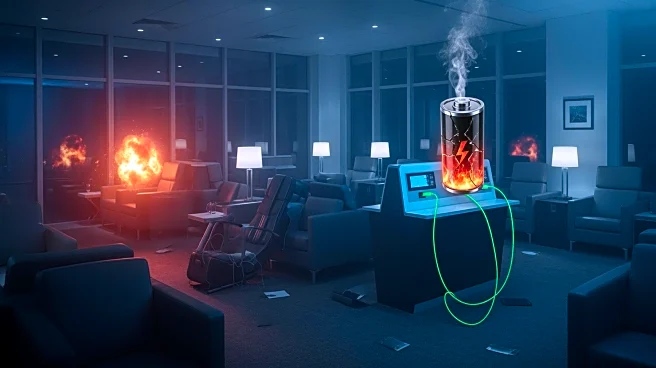What's Happening?
A battery phone charger exploded in the pocket of a passenger at Melbourne Airport, causing a fire and leading to the evacuation of 150 people from the Qantas lounge. The incident occurred when the passenger's
jacket caught fire, prompting staff to extinguish the flames by rushing him to a shower. The passenger was hospitalized with burns on his hands and legs. The explosion was caused by a lithium-ion battery, which can be dangerous if overheated. Airlines have increasingly restricted the use of such batteries due to their potential to cause fires.
Why It's Important?
The incident highlights the risks associated with lithium-ion batteries, particularly in enclosed spaces like airports and airplanes. As these batteries are commonly used in portable chargers, their potential to overheat and cause fires poses a significant safety concern. The evacuation underscores the need for stringent safety measures and regulations regarding the use of electronic devices in public spaces. Airlines and airport authorities may need to review and update their policies to prevent similar incidents and ensure passenger safety.
What's Next?
Airlines may consider further restrictions on the use of lithium-ion batteries and portable chargers on flights. Airport authorities might implement additional safety protocols to detect and manage potential fire hazards. The incident could lead to increased awareness and education for passengers regarding the safe use of electronic devices. Regulatory bodies may evaluate existing guidelines and propose new measures to mitigate risks associated with battery-powered devices in public areas.










